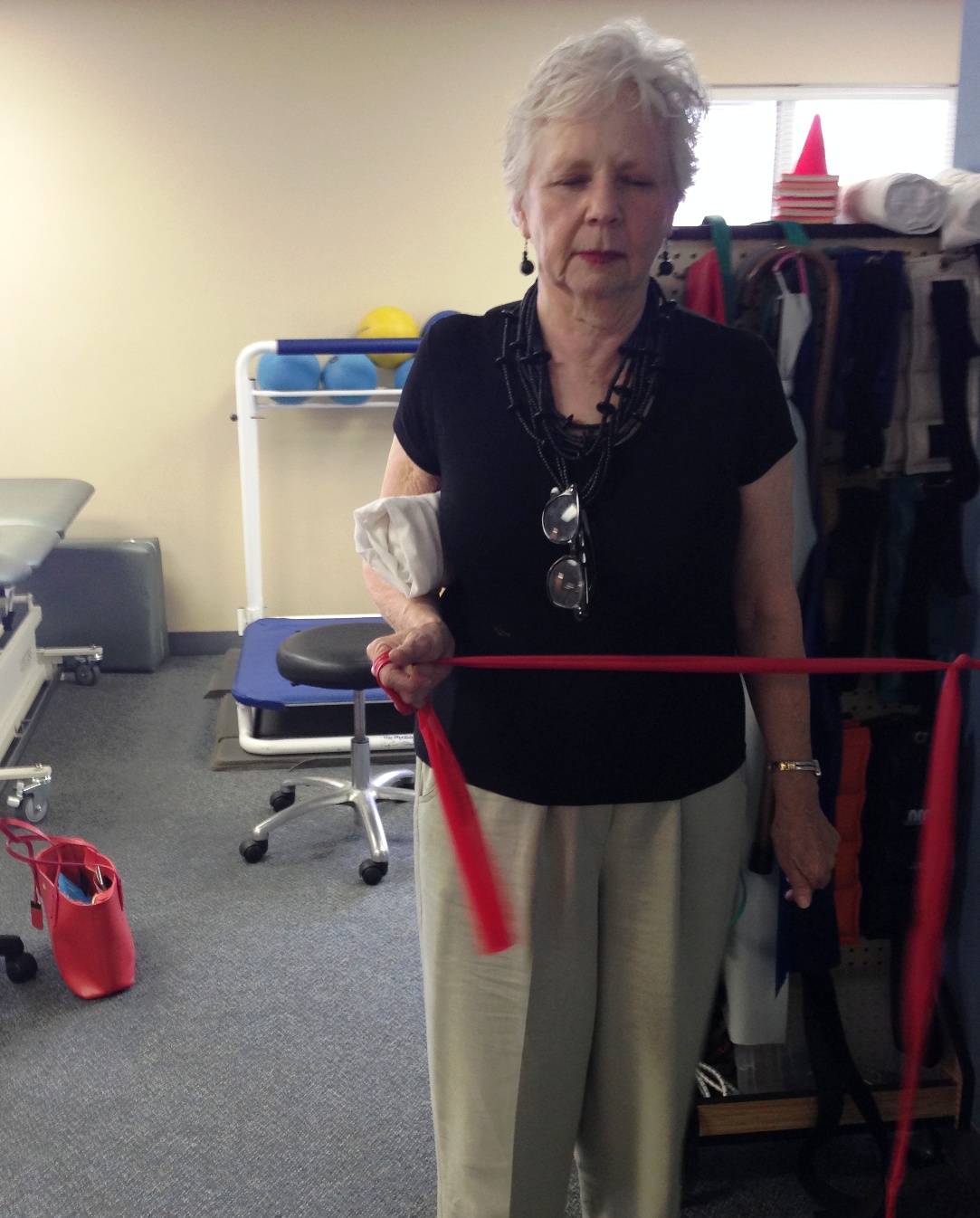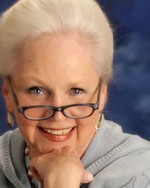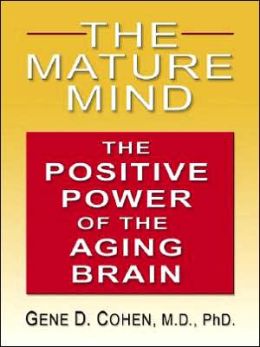It Takes Work to Get Well
Since March 7, I have been undergoing physical therapy three times a
week for about 90 minutes of stretching, reaching, muscle and tendon
manipulation, hand-squeezing, pulling, and the gentle forcing of my
right arm and shoulder to do the extensions I so easily took for
granted before I fell. I dislocated my shoulder (in the anterior
inferior position if anyone is interested), tore two essential muscles
that control the rotator cuff (the supraspinatus muscle, to be
specific, and the infraspinatus) and underwent arthroscopic surgery.
My
team of physical therapists have been great—pushing me enough but not
too much. I have discovered over these two months that getting well
takes lots of hard work. Rehabilitation doesn’t just happen. As my
orthopedic surgeon says, “God heals, but we have to collaborate with
Him in the process.”
 The smallest pulling motion causes pain in healing wounds— The smallest pulling motion causes pain in healing wounds—
but is necessary to build torn muscles.
This last Monday, I had my three-month
physician’s examination. Proudly, like a little kid, I said, “Look what
I can do!” and lifted my outstretched right arm upward, all the way
above my head. This is a simple move that has taken these three months
to accomplish. My orthopedic surgeon was relieved and pleased. “I was a
little concerned,” he reported, “when last time we met, you couldn’t
move that arm above your waist.” I hadn’t thought about how
hair-raising this recovery process in patients must be for the surgeons
who put the pieces back together. Today he beamed. “Looks like
everything is aligned and functioning the way it should be.” Whew! I
was informed that I had completed my required 30 sessions of PT and
would be given exercises to do at home. I was also warned that it would
probably take a whole year to recover fully.
And to think,
after I tripped in the kitchen over the artisan rug we brought back
from Oaxaca, Mexico, fell across the open dishwasher drawer, hit my
head on the way down against a cabinet and dislocated my shoulder, I
actually said to friends and family, “Well, it could have been a lot
worse. I could have had a concussion or broken my arm.” Either of these
would have healed rapidly in comparison to the rehabilitation process I
will be in for a year. How little we know!
 Tyler keeps reminding me that correct posture is important for the healing process. (Too much computer work!)
All this to say
that this physical healing has made me consider how long it really
takes sometimes to get well—how long it takes to recover from the death
of a loved one, from injuries to the psyche committed long ago, or from
wounds of battle, accident or evil intent.
“Forty sessions,” a friend reported who also had rotator-cuff surgery. “Then I was good as new.”
God
does heal these amazing bodies, but too often many of us refuse to
cooperate with His designs. We rush away from the pain of recovery,
deny the extent of the damage, and fudge on our at-home exercises. Then
we complain that nothing is working. Or we pretend that nothing is
wrong (with our shoulder, our psyche, our emotions, or our
spirituality), but to everyone else, it’s obvious something is wrong—we
can’t reach our right arms above our heads, for goodness sake. We say
inappropriate things, yell and shout (mouth disease), demand to get our
way, and see the world exclusively through the grid of our own desires
(rabid narcissism).
“Nothing wrong with me.” For this person, it’s always the other guy’s or gal’s fault.
So
here are some rehabilitation tips on getting healthy. Believe me,
physically or emotionally or spiritually, it’s just plain hard work:
1. Always, always ask in conflicted circumstances, “What have I done to contribute to this?”
2. If
you have the courage, ask the Holy Spirit to tell you where you are in
error. In fact, learn to collaborate with the divine Therapist. He is
perfectly able to bring you into all truth.
3. Ask yourself this telling question: “Why am I really so angry (or sad or afraid)?”
4. Compare all your negative emotions to those Scriptural passages that clearly indicate we are not to give way to them: “Let
all bitterness and wrath and anger and clamor and slander be put away
from you; with all malice, and be kind to one another, tenderhearted,
forgiving one another, as Christ in God forgave you.” Ephesians 4:31. In a nutshell, this verse is a great diagnostic as to how you are doing.
5. Make a list of intentionalities. What can I do to keep from tripping over that rug from Mexico again? I can:
• Take up the rug and put it in a less trafficked area.
• Put a rubber mat under it so it will not slide.
• Or have a son who goes and buys carpet tape and tapes it to the kitchen floor. (This one worked for me.)
How can I keep from spiraling into that deep depression? I can:
• See
a professional to determine if there are any organic causes; thyroid
depletion, for instance, often can contribute to mood shifts and
sadness.
• Talk with a wise friend who will not just sympathize with your difficulties, but speak truth into your dilemma.
• Catch
and identify the negative emotion before it grows and overwhelms you.
Do something positive that will calm the anger—quote Scripture, choose
to see the best in people or circumstances, ask God to give you
strength to do the exercises.
6. You will know that you
are healing when the moves that used to bring you pain or trigger your
anger no longer have that impact on you. The lateral arm movement to
the right side that used to make me wince and clench my shoulder now is
easy and smooth without any discomfort. Or that person who used to get
under your skin no longer leaves you fuming.
This morning I
looked at my calendar, making plans for the next week, and suddenly
there were all these open spaces. For two months I have been under
various doctors’ care, working with the physical therapy team, seeing a
nutritionist and learning from a de-stressing expert. All I have on my
calendar for the days ahead is a weekly appointment with my clinical
nutritionist. WOW! I am feeling better physically than I have in twenty
years. I am no longer experiencing afternoon fatigue collapses.
Yesterday, I walked seven miles and ended the day (according to the
pedometer I wear), having taken 17,521 steps. It has been work. BUT IT
HAS BEEN WORTH IT.
All I can say is: Do the work to get well.
Karen Mains
NOTICES
Congratulations to Mary OgaloWe
are so excited that our Kenyan Global Bag Project Manager, Mary Thamari
Odhiambo (Ogalo), has received a financial award that will pay for her
to complete her Ph.D. The announcement reads as follows:
The
Harvey Fellows Selection Committee … and members of the Mustard Seed
Foundation Board and staff, selected 13 new Harvey Fellows from a pool
of nearly 300 applicants. The new Fellows are a talented group of
passionate Christians who are pursuing degrees at premier institutions
in strategic fields.
This means Mary, who has worked
with the Global Bag Project since 2009, has formed a Kenyan board and
applied and received official NGO (non-government organization) status,
and will be traveling to the States to receive her award to complete a
Ph.D. in African Studies from the University of Birmingham, in the U.K.
Mary Ogalo Is Coming! Mary Ogalo Is Coming!Mary
will arrive in Washington, D.C. for the award ceremonies from June
17-18, then fly to Chicago on Thursday, June 19. Carla Boelkens and I
will be setting up small Meet-and-Greet events in the Chicago area and
will send out a specific schedule as we get closer to the 19th.
 Mary Ogalo giving instructions in sewing room in Kenya. Mary Ogalo giving instructions in sewing room in Kenya.
Mary
has launched a remarkable program called the County Girls Caucus, which
is a community-based project to educate girls in rural communities in a
preventive way that will help them avoid the pitfalls and traps of
poverty. We would love for you to hear her speak about the women who
are the seamstresses who sew the beautiful bags we sell here in the
States, but we also want to hear more about the launch of the County
Girls Caucus.
We are
praying about raising some $10,000 to send home as a love gift for Mary
to employ the Global Bag Project seamstresses to make products for
Christmas sales here in the States.
This is a BIG
leap of faith for us here at Mainstay Ministries, since our list of
supporters is very small. Businesses raise venture capital to launch
new ventures. So we are praying for some people who want to help
underwrite Mary’s God-given passions—a gift of $10,000 would go a long
way toward achieving this goal.
 Global Bag Project bags Global Bag Project bags
Mary
will be in the Chicago area from June 19 to 28. Gifts can be designated
for the Global Bag Project and mailed to Box 30, Wheaton, IL 60187. We
can take credit cards. A phone donation is the easiest way to do this.
Call 630-293-4500, or you can donate through PayPal on the Web site
at www.GlobalBagProject.org.
Reminder!
The Soulish Food e-mails are
being
posted biweekly on the Hungry Souls Web
site. Newcomers can look that over and decide if they want to
register on the Web site to receive the biweekly newsletter. You might
want to recommend this to friends also. They can go to www.HungrySouls.org.
|
|

Karen Mains
“God
does heal these amazing bodies, but too often many of us refuse to
cooperate with His designs. We rush away from the pain of recovery,
deny the extent of the damage, and fudge on our at-home exercises.”
BOOK CORNER
 The Mature Mind:
The Positive Power of the Aging Brain
by Gene Cohen, M.D., Ph.D
I
wish I had read this book in my 40s (was it even written then?) As the
back-cover copy declares, “Gene Cohen, a renowned psychiatrist and
gerontologist, delivers good news for those in the second half of life,
with an extraordinary account of cutting-edge neuroscience,
groundbreaking psychology, fascinating vignettes from history and case
studies, and practical advice for personal growth strategies.”
From
all this, Cohen concludes: “The brain can get better with age!” Cohen
defines wisdom as a synonym for the developmental intelligence that
only comes with age. “Earlier,” he writes, “I described wisdom as deep
knowledge used for the highest good. Making wise choices usually
involves drawing on both the logical and the intuitive, the right and
left hemispheres, the head and the heart. I believe that the changes
and continuing growth of the brain in later life amply support our
capacity for wisdom and that, as the quote from Ben Franklin suggests
(i.e., 'The doors of wisdom are never shut'), this capacity never runs dry.”
Drawing
on vast and intriguing research, Cohen makes startling conclusions that
run contrary to the normal assumptions about the aging process: Rich
possibilities, including the life of the mind, continue well into the
latest of our years. We do not need to slip into an inevitable mental
stupor.
How to keep the mind alive? The last chapter studies
the use of creativity and the development of participatory activities
that keep us lively, interesting and ever-curious. This is a good
handbook to help those of us in the younger years plot out the kind of
beings we want to be as we age. Well-written, encouraging, challenging
and comforting.
Buy From Amazon.com
|





